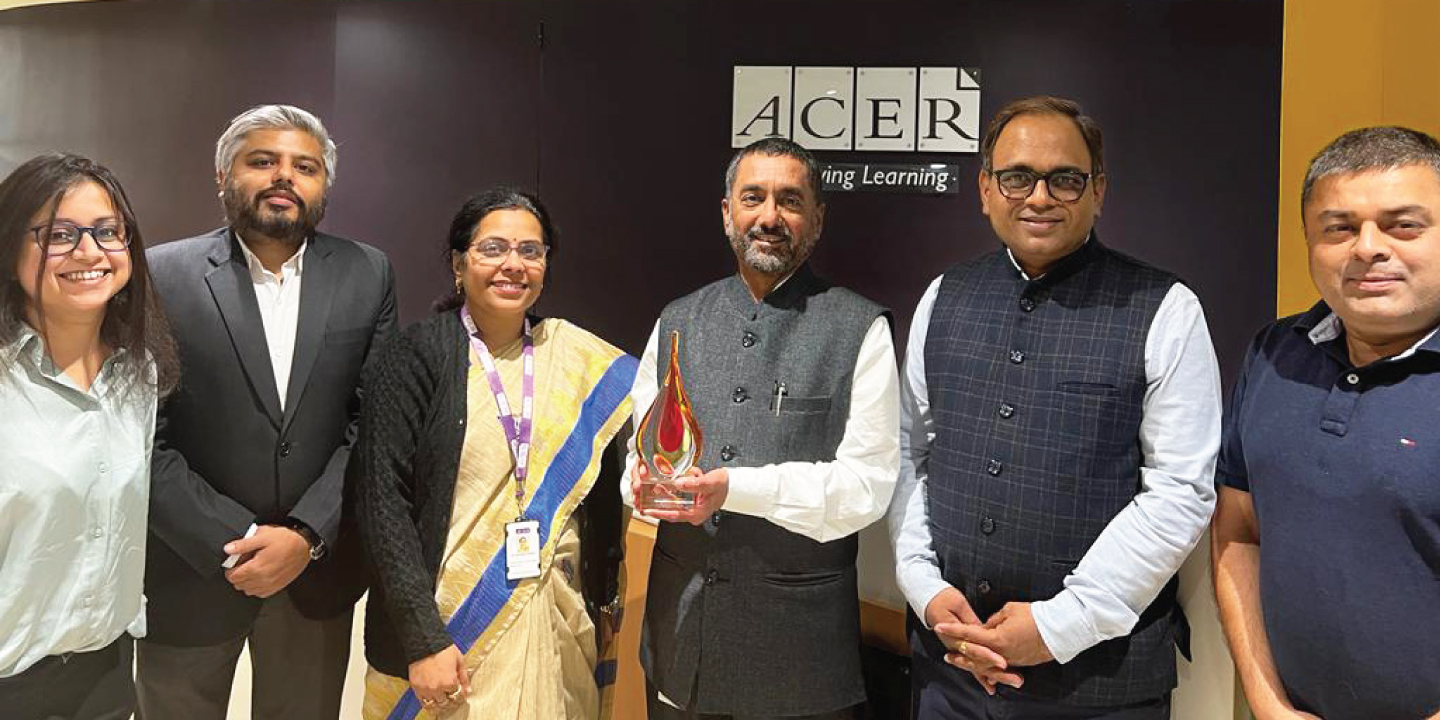
Supporting literacy in South Asia
ACER news 7 Sep 2020 6 minute readACER India is supporting education systems and policy planners in collecting accurate and insightful data on literacy levels of students.
The ability to read, often referred to as literacy skills, is a foundational skill that allows students to access a lifetime of learning and economic opportunity. According to UNESCO, literacy is the ability to use written materials under different contexts in a way that allows people to participate in the wider community.
Literacy skills are considered foundational as they are essential for accessing knowledge in different subjects and domains. In fact, effective literacy skills are key to educational and employment opportunities that help individuals climb out of poverty and chronic underemployment. As literacy is a prerequisite for knowledge acquisition, one of the targets of the United Nation’s Sustainable Development Goals 4 is devoted to the achievement of literacy for youth and adults – ‘By 2030, ensure that all youth and a substantial proportion of adults, both men and women, achieve literacy and numeracy.’
Measuring literacy
As a leading international research organisation in the education sector with a focus on educational assessment, ACER has been on the cutting edge of literacy research. In South Asia, ACER has supported progress in literacy levels through technical assistance to various assessments and examination programmes both at national and sub-national levels. Accurate and insightful data on literacy are critical in deciding the next steps of learning and informing interventions.
ACER India designed and developed the national assessment in Bangladesh and Bhutan to help measure literacy levels across grades. It has partnered with UNICEF for building the capacity of various Indian states to conduct standardised assessments. Currently, ACER India is supporting Nepal in redesigning the examination system for Grade 8 to ensure that higher-level literacy skills are accurately assessed.
Evaluating literacy programmes
ACER India also undertakes evaluation and impact assessment of programmes designed to improve literacy in South Asia and Africa. In India, ACER India evaluated the impact of five different interventions designed to improve literacy among children aged 6-8 years from the most disadvantaged sections of society − tribal children, children from socially or economically disadvantaged communities in urban areas, etc. Interestingly, the highest impact was created by those interventions that focused on teacher training. In Zambia, ACER India is evaluating a remedial programme in literacy and numeracy for primary school pupils. Such technically robust programme evaluations are critical in understanding if interventions are able to change the literacy levels of students over a period of time.
Overcoming the learning crisis in India
India’s Padhe Bharat Badhe Bharat programme for early reading and numeracy defines reading as a process of meaning-making rooted in the socio-cultural environment of the learner, encompassing a repertoire of skills including critical thinking and requiring continuous practice for development. However, in India, the lack of basic literacy skills among school going children is a major cause for concern.
A number of educational surveys suggest that students are reading much below their grade levels. The ASER 2018 Report examined the basic literacy skills of students and found that more than 75 per cent of children in Grade 3, about 50 per cent in Grade 5 and more than 25 per cent in Grade 8 are unable to read at Grade 2 level. The ASER ‘Early Years’ Report 2019 states that only 60 per cent children in the 4-8 year age group are able to read commonly used letters. The findings of the Planning Commission Evaluation Report on Sarva Shiksha Abhiyan indicate that at Grade 2 level, only 42 per cent students were able to read letters in their local or regional language script. These numbers indicate the severity of the crisis.
This ‘learning crisis’ has also been identified by the National Education Policy 2020 which states that a significant proportion of elementary school students have not attained the ability to read and comprehend basic text. To ensure universalisation of foundational literacy by 2025, the policy proposes a National Mission on Foundational Literacy and Numeracy.
To support the cause of improving literacy, ACER India draws upon its vast international experience and expertise to identify gaps and the most effective interventions in literacy programmes. The data from robust assessment and evaluation are key to strengthening literacy programmes with specific context and requirements.
If you are interested to learn more about our assessment and evaluation programmes, write to us at commsindia@acer.org.